TMJ Disorders
Many people suffer from seemingly unrelated problems such as headaches, teeth grinding, difficulty chewing, and jaw clicking, popping, or tenderness. Although stress has been traditionally blamed as the cause of these symptoms, there is usually an underlying problem that is responsible for these issues.
What is a TMJ Disorder?
The temporomandibular joints (TMJ) are the two joints that connect your jaw to your skull, allowing speech, chewing, and other motions. A TMJ disorder occurs when the chewing muscles and the joints of the jaw are not working together correctly, which places stress on the muscles, bones and teeth that are directly or indirectly connected to these joints.
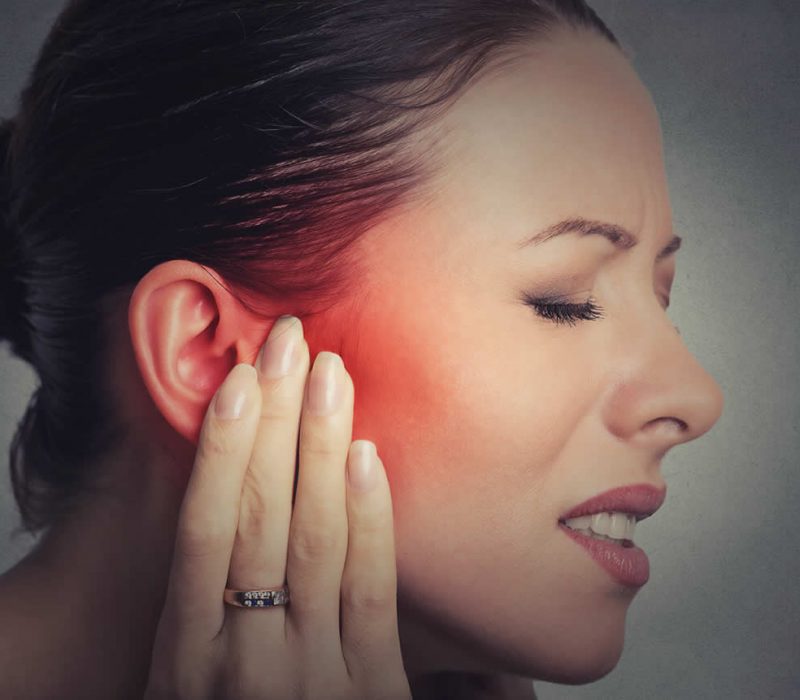
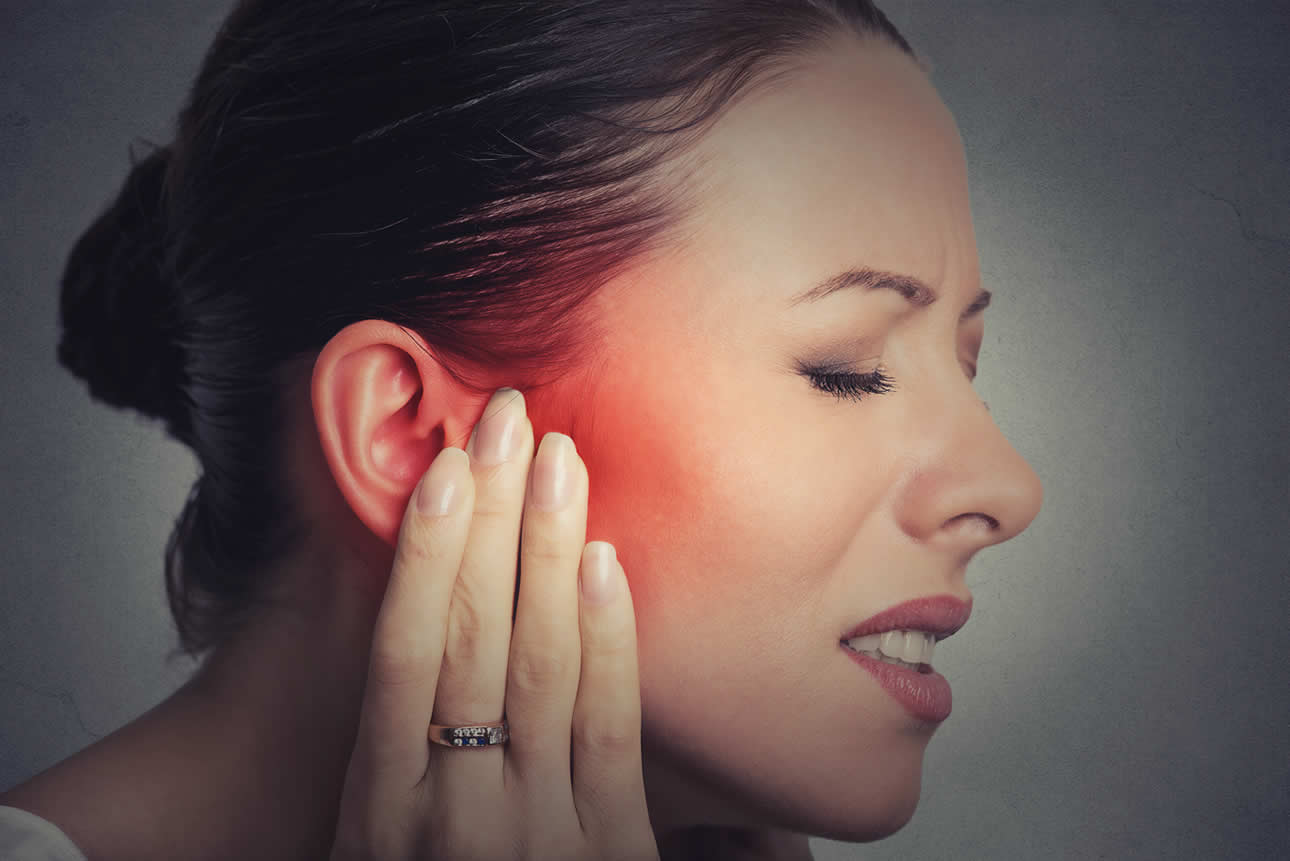
TMJ Disorders
Many people suffer from seemingly unrelated problems such as headaches, teeth grinding, difficulty chewing, and jaw clicking, popping, or tenderness. Although stress has been traditionally blamed as the cause of these symptoms, there is usually an underlying problem that is responsible for these issues.
What is a TMJ Disorder?
The temporomandibular joints (TMJ) are the two joints that connect your jaw to your skull, allowing speech, chewing, and other motions. A TMJ disorder occurs when the chewing muscles and the joints of the jaw are not working together correctly, which places stress on the muscles, bones and teeth that are directly or indirectly connected to these joints.
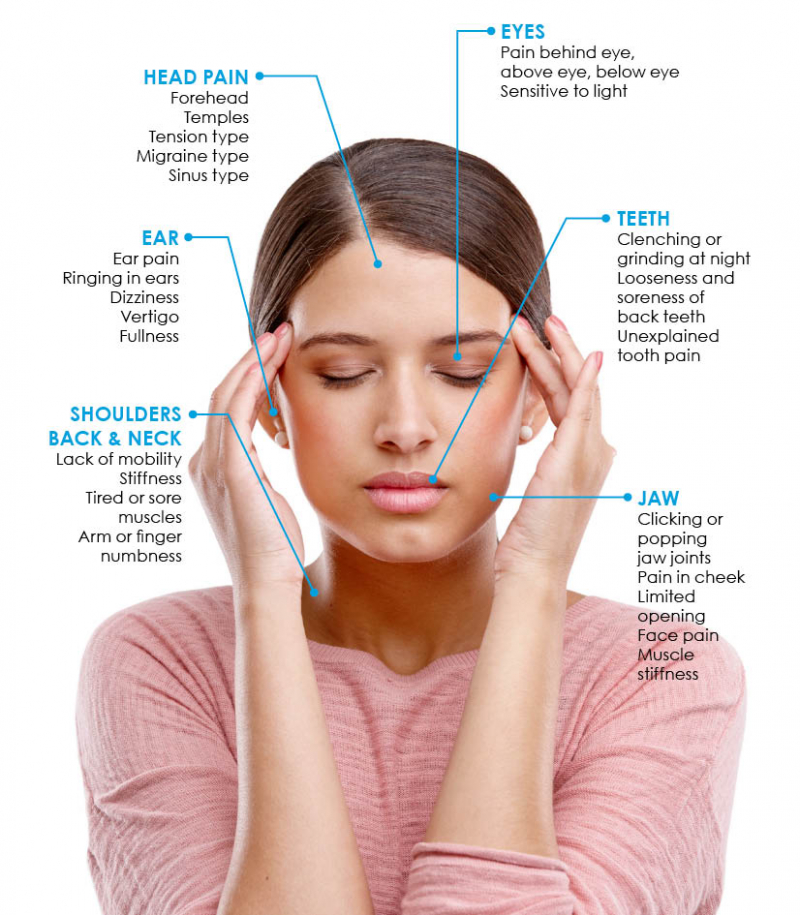
TMJ Disorder Symptoms
- Grinding or clenching your teeth, often while sleeping or distracted
- Waking up with sore, stiff muscles around your jaws
- Frequent headaches or neck aches
- Pain that gets worse when you clench your teeth
- Stress makes your clenching, grinding and pain worse
- Jaw clicking, popping, grating, or locking when you open your mouth
- Difficulty or pain opening your mouth, eating, or yawning
- Teeth that no longer touch when you bite
- Difficulty using your front teeth to bite or tear food
- Sensitive, loose, broken, or worn teeth
TMJ Disorder Causes
TMJ disorders develop for many reasons. Patients with a history of traumatic injury to the face or jaw are at increased risk for TMJ disorders. Degenerative conditions, such as arthritis, can also damage the TM joints. Often, TMJ disorders arise from an out-of-balance bite – a lack of harmony between the way the jaw naturally moves, and the way teeth fit and work together.
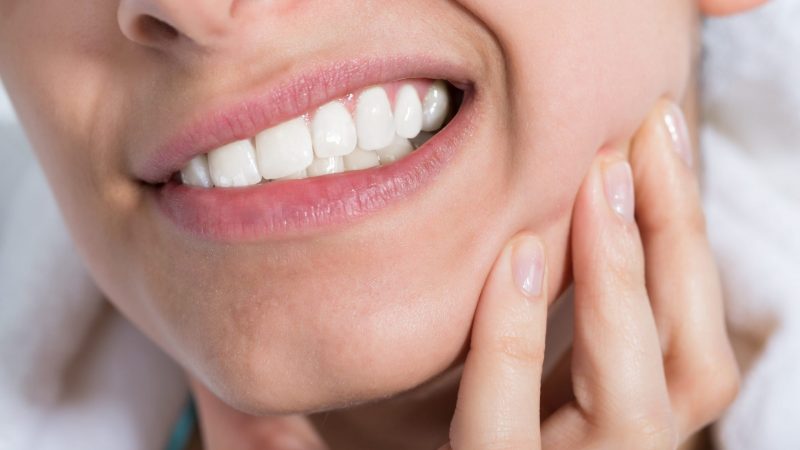
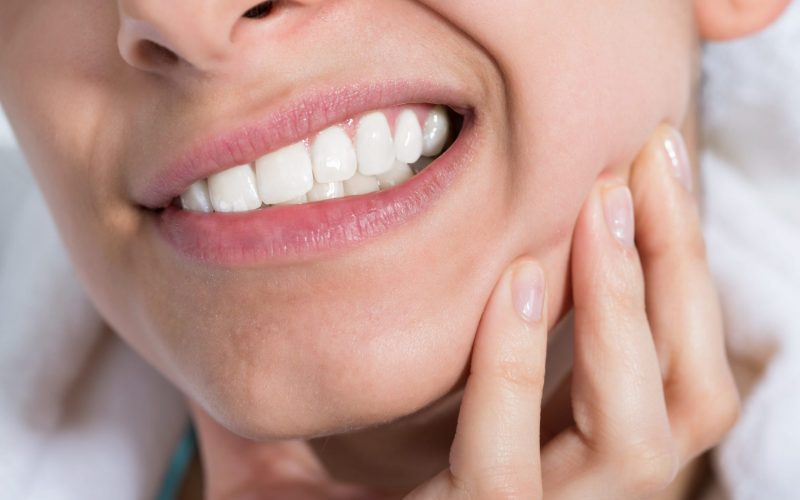
TMJ Disorder Causes
TMJ disorders develop for many reasons. Patients with a history of traumatic injury to the face or jaw are at increased risk for TMJ disorders. Degenerative conditions, such as arthritis, can also damage the TM joints. Often, TMJ disorders arise from an out-of-balance bite – a lack of harmony between the way the jaw naturally moves, and the way teeth fit and work together.
Treatment
TM Joint disorders are more easily diagnosed and treated than they were in the past. While some of the symptoms, like that clicking noise, seem to be mere nuisances, mild TMJ issues can develop into more serious conditions, making early diagnosis and treatment important.
Because there are several possible causes for TMJ disorder, there are various treatment options that dentists can utilize to improve the comfort and function of your jaw. Treatment for TMJ disorders are normally nonsurgical, but they can vary, depending on the nature and severity of the disorder.
Once an evaluation confirms a diagnosis of TM Joint disorder, your doctor will determine the proper course of treatment. Drs. Kenward and Mayoral will be happy to discuss with you which treatment options will help you to have a healthier and more comfortable jaw.

Treatment
TM Joint disorders are more easily diagnosed and treated than they were in the past. While some of the symptoms, like that clicking noise, seem to be mere nuisances, mild TMJ issues can develop into more serious conditions, making early diagnosis and treatment important.
Because there are several possible causes for TMJ disorder, there are various treatment options that dentists can utilize to improve the comfort and function of your jaw. Treatment for TMJ disorders are normally nonsurgical, but they can vary, depending on the nature and severity of the disorder.
Once an evaluation confirms a diagnosis of TM Joint disorder, your doctor will determine the proper course of treatment. Drs. Kenward and Mayoral will be happy to discuss with you which treatment options will help you to have a healthier and more comfortable jaw.
